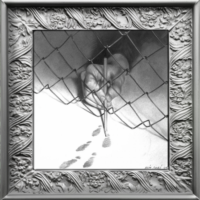The Aesthetic Universe
Recently I published Homo Aestheticus: Philosophical Fragments on the Will to Art, available at most online bookstores in paperback, hardback, and as a pdf (on a pay ‘what you want’ basis).
In coming days and weeks I’ll post some of the chapters here on the Simplicity Collective.
Each chapter is a collection of philosophical fragments, thematically arranged, which over the course of the book form an argument. Here is Chapter 1.
The Aesthetic Universe
- The aesthetic universe is all that is the case, and this infinitely complex reality is always expanding and in flux.
- Existence, at base, is malleable and indeterminate clay. It must be given form, which is the primordial aesthetic task.
- As story-telling animals, our experience is mediated by language – by myths and metaphors – and yet we create language and thus the atmosphere of our existence.
- Neither our concepts nor their meanings are given to us in advance. We must invent, define, and interpret them, without hope of a final or stable correspondence between language and the world.
- The task of producing conceptual schemes through which we perceive reality comes to influence the sensory experience of the reality that language has constructed.
- Language therefore shapes what we see and how we think, but given that language also shapes our experience of reality, it also shapes what and how we feel.
- The instability of language means that the ontological natures of ourselves and the universe are inherently unstable, always evolving as the contexts in which language is used and interpreted relentlessly shift.
- Propositions of truth emerge from, and operate in relation to, contingent linguistic frameworks that happen to be in place but could have been different and will be different.
- Given the infinite complexity of the aesthetic universe, no narrative or metanarrative can ever tell the whole story.
- Paradoxically, not even final vocabularies are ‘final’ or ‘closed’, for they exist in an ever-expanding and evolving interpretive space, where semantic drift and disruption are unavoidable.
- There will never come a time when all possible descriptions and interpretations of the world have been exhausted.
- The poet can always make things new.
- Metaphors, which are infinite in number, both reveal and conceal realities.
- New metaphors, interpretations, and redescriptions can always arise, enabled by the free play of the creative imagination.
- It follows that the final truth of things must forever remain elusive. When properly grasped, this mystery of existence is both humbling and exhilarating.
- Even the idea of knowledge having ‘foundations’ is based on the metaphor of a building. So what would epistemology become if its constitutive metaphor was a river, or a plant, or a painting? Or perhaps: a painting of a plant in a river (creative, organic, and flowing)?
- The material universe viewed as a ‘machine’ that operates according to the immutable laws of physics is but one metaphoric description of reality, useful as far as it goes for the purposes of prediction and control.
- Dead metaphors disguise themselves as literal truth, as if they were the only story to tell.
- Machinic thinking is a dead metaphor that holds us captive. It must be brought back to life so that other imaginaries can be experimented with.
- The cosmos can be elevated to the dignity of a work of art with a bold act of interpretation, that is, through the intentions of homo aestheticus.
- To the objection that the universe cannot be art because it was not made by a human artist, the response is that art, since Duchamp, can be ‘readymade’.
- A submission to the Society of Independent Artists for its next exhibition: the universe.
- The experience of art is less about an objective encounter with a physical entity and more about poetic engagement with the possibilities of meaning that surround the entity under aesthetic contemplation – in this case, the universe itself.
- This transfiguration of the cosmos doesn’t involve changing the physical characteristics of the material universe in any way. Rather, it involves changing its ontological character through redescription in ways that call on individuals to engage the phenomenon of existence differently.
- When new vocabularies are invented that do not catch on, they can be dismissed as uninteresting, false, irrational, or even mad. But a metaphoric shift that first appears strange can come to be seen, in the fullness of time, as truth, and in the process the metaphor dies, or at least lies dormant.
- Thus the madman can become a poet-philosopher, and the old truth-tellers can fall out of fashion as their traditional verities get overturned and replaced.
- The Owl of Minerva has taken flight.




